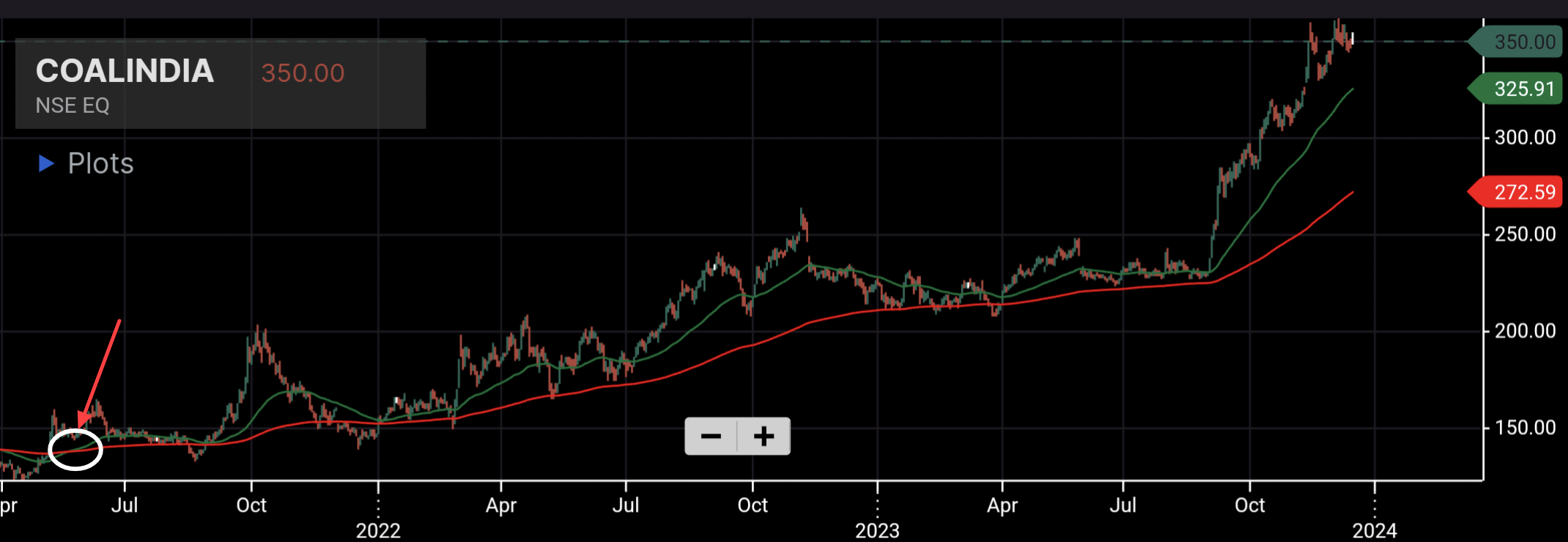Introduction
In the dynamic world of stock trading, investors are constantly seeking strategies that provide them with a competitive edge. One such strategy that has gained popularity is the Golden Crossover, a technical analysis pattern that signals potential bullish market trends. In this article, we will delve into the intricacies of the Golden Crossover stock trading strategy, exploring its principles, applications, and the factors that traders should consider when implementing this approach.
Understanding the Golden Crossover:
The Golden Crossover is a technical analysis indicator that occurs when a short-term moving average crosses above a long-term moving average. Typically, this involves the 50-day moving average (short-term) crossing above the 200-day moving average (long-term). This event is considered significant as it signals a potential shift from a bearish to a bullish trend in the stock’s price.
Key Components of the Golden Crossover:
1. Short-term Moving Average (SMA):
– The short-term moving average is calculated by taking the average price of a security over a short period, commonly 50 days.
– It reacts quickly to price changes, providing a more responsive indicator of recent market movements.
2. Long-term Moving Average (LMA):
– The long-term moving average involves averaging the stock’s prices over an extended period, typically 200 days.
– It provides a smoother representation of the overall trend, reducing the impact of short-term price fluctuations.
Applications of the Golden Crossover:
1. Bullish Signal:
– The primary application of the Golden Crossover is to identify potential bullish trends. When the 50-day SMA crosses above the 200-day SMA, it suggests that the stock may be entering a period of upward momentum.
2. Trend Confirmation:
– Traders often use the Golden Crossover to confirm existing trends. If the crossover aligns with other technical indicators or chart patterns, it can strengthen the conviction in a particular market direction.
3. Entry and Exit Points:
– The Golden Crossover can serve as a guide for entry and exit points. Investors may consider entering a position when the crossover occurs, anticipating a bullish trend. Conversely, a bearish crossover (short-term crossing below long-term) may signal a potential exit point.
4. Risk Management:
– This strategy can aid in risk management by providing traders with a clearer picture of market sentiment. It helps in setting stop-loss orders and managing positions based on the evolving trend.
Factors to Consider:
1. Market Conditions:
– The effectiveness of the Golden Crossover may vary based on market conditions. In trending markets, crossovers are more likely to be reliable, while in choppy or sideways markets, false signals may occur.
2. Confirmation from Other Indicators:
– To enhance the reliability of the Golden Crossover, traders often seek confirmation from other technical indicators, such as the Relative Strength Index (RSI) or Moving Average Convergence Divergence (MACD).
3. Historical Performance:
– Analyzing the historical performance of a stock using the Golden Crossover can provide insights into its effectiveness for that particular asset. Past crossovers and their outcomes can guide decision-making.
4. Volatility:
– Consider the level of volatility in the market. Higher volatility may lead to more false signals, requiring additional confirmation from other indicators.
Case Studies:
1. Apple Inc. (AAPL):
– Examining historical charts of Apple Inc., instances of the Golden Crossover aligning with significant price rallies can be observed. Traders who entered long positions during these crossovers might have capitalized on subsequent bullish trends.
2. Amazon.com Inc. (AMZN):
– A study of Amazon’s stock history reveals periods where the Golden Crossover was followed by sustained upward movements. This reinforces the idea that the strategy can be effective, but also highlights the importance of considering other factors.
Conclusion:
The Golden Crossover stock trading strategy has proven to be a valuable tool for traders seeking to identify potential bullish trends and optimize entry and exit points. However, like any trading strategy, it is not foolproof, and careful consideration of market conditions, confirmation from other indicators, and historical performance is crucial for success.
Traders should view the Golden Crossover as part of a comprehensive approach to technical analysis and risk management. By combining this strategy with a disciplined trading plan, thorough research, and a keen understanding of market dynamics, investors can harness the power of the Golden Crossover to navigate the complexities of the stock market with greater confidence and precision.
Click here For Today’s crossover
Is Byju Raveendran in trouble? To know Click here


[…] Unlocking Market Success: The 7 Power Moves of the Golden Crossover Stock Trading Strategy […]
[…] "Inside Bars Mastery: 4 Strategies for Trading Success" – Beyond Headlines on Unlocking Market Success: The 7 Power Moves of the Golden Crossover Stock Trading Strategy […]